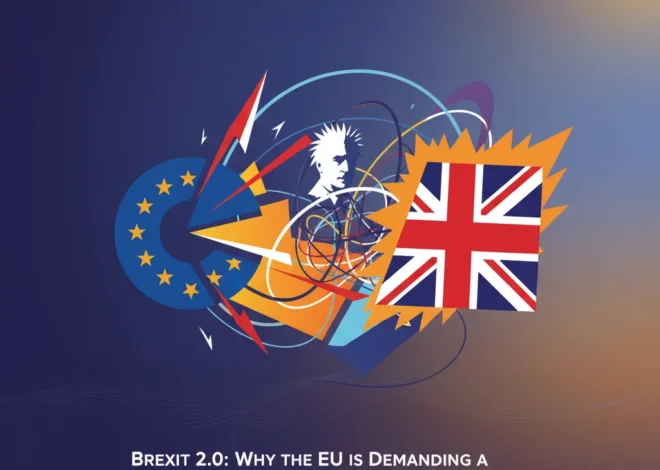
The Trillion-Dollar Hesitation: Analyzing the Economic Fallout of the UK’s COVID-19 Response
Introduction: Beyond the Headlines of the COVID Inquiry
The UK’s COVID-19 inquiry has dominated headlines, unearthing a torrent of revelations about the government’s handling of the pandemic. While much of the focus has been on the political drama and public health failings, for investors, finance professionals, and business leaders, the testimony reveals something far more systemic: a catastrophic failure of risk management with profound and lasting consequences for the UK economy. This wasn’t just a health crisis; it was an economic one, exacerbated by a critical delay in decision-making.
The core finding, as detailed in reports from outlets like the Financial Times, is that a crucial window to act in early 2020 was missed. This post moves beyond the political post-mortem to dissect the financial and economic shockwaves that this hesitation sent through the nation. We will explore the immediate market chaos, the long-term fiscal burden, and the critical lessons this episode offers for anyone involved in investing, corporate strategy, or economic policy.
The Anatomy of a Delayed Response
To understand the economic impact, we must first grasp the timeline of the delay. Evidence presented at the inquiry paints a picture of a government machinery that was slow to recognize the scale of the threat. Key scientific advisers, including Professor Dame Angela McLean, warned that a “massive loss of life” was imminent without immediate action. Yet, the decision to implement the first national lockdown did not come until March 23, 2020.
Sir Patrick Vallance, the UK’s chief scientific adviser at the time, highlighted a prevailing view within government that the British public would not accept early, stringent restrictions—a hypothesis that proved tragically incorrect. This hesitation, a period of just a few weeks, proved to be the critical juncture where the trajectory of both the pandemic and the subsequent economic damage was set. The delay meant that when the lockdown was finally imposed, it had to be longer and more severe than it might otherwise have been, creating a far deeper economic crater.
The Immediate Market Reaction: A Crisis of Confidence
Financial markets are driven by information and confidence, and in March 2020, both were in freefall. The government’s perceived indecisiveness created a vacuum of uncertainty that sent the stock market into a nosedive. The FTSE 100, a key barometer of the UK’s economic health, experienced some of its worst days in history. This wasn’t just a reaction to the virus itself, but to the dawning realization that the official response was behind the curve.
For those involved in trading, it was a period of unprecedented volatility. The pound sterling plummeted against the dollar, reflecting a global loss of confidence in the UK’s ability to manage the crisis. This currency depreciation had immediate real-world effects, increasing the cost of imports and adding another layer of pressure on already struggling supply chains. The delay didn’t just cost lives; it vaporized billions in market value and severely damaged investor confidence in UK plc.
The Epstein Files Gamble: Decoding the Economic Shockwaves of a Political Maneuver
To illustrate the rapid escalation of events, the following timeline contrasts key government decisions with their immediate economic repercussions.
| Date / Period | Key Government Action (or Inaction) | Immediate Economic & Market Impact |
|---|---|---|
| Late Feb / Early Mar 2020 | Scientific advice to “move hard and early” is not fully implemented. Public guidance remains limited. | Initial market jitters begin. FTSE 100 starts its sharp decline from yearly highs. |
| March 12, 2020 | The government moves from the “contain” to “delay” phase, advising self-isolation for those with symptoms but avoiding major restrictions. | The FTSE 100 suffers its second-worst day in history, plunging over 10%. The market interprets the response as insufficient. |
| March 16-20, 2020 | Boris Johnson advises against non-essential travel and contact. Pubs, schools, and restaurants are ordered to close. | Extreme volatility continues. The Bank of England cuts interest rates to a record low of 0.1%. The Chancellor announces a massive fiscal stimulus package. |
| March 23, 2020 | The first national lockdown is officially announced and implemented. | Markets begin to stabilize slightly as a clear strategy emerges, but the pound hits a 35-year low against the dollar. The true economic cost begins to be calculated. |
The Fiscal Bazooka: A Necessary but Costly Consequence
The severity of the economic downturn, amplified by the delayed lockdown, necessitated a government intervention of historic proportions. The furlough scheme, business loans, and other support measures represented one of the largest fiscal expansions in modern British history. While these actions were essential to prevent a complete collapse of the banking system and mass unemployment, they came at a staggering cost.
The national debt soared to levels not seen since the aftermath of World War II. According to the inquiry’s findings, the ultimate cost of the pandemic to the public purse is estimated to be between £310bn and £410bn. This colossal sum now hangs over the UK’s public finance, constraining future government spending, influencing tax policy for decades to come, and presenting a significant headwind for economic growth. The delay didn’t just deepen the recession; it mortgaged the country’s economic future.
UK Fortifies Financial Safety Net: Bank Deposit Protection Set to Rise to £120,000
An Unintended Catalyst for Financial Technology
Amidst the economic devastation, the lockdown acted as a powerful, if unintentional, catalyst for digital transformation, particularly in the world of financial technology. With physical bank branches closed and cash transactions discouraged, the adoption of fintech solutions accelerated at a pace that would have been unimaginable pre-pandemic.
Digital banking, contactless payments, and online investment platforms saw explosive growth. The crisis forced a behavioral shift that has permanently altered the landscape of consumer and business finance. This rapid evolution highlights a key lesson in economics: crises, while destructive, are also powerful agents of change. The pandemic stress-tested the resilience of traditional financial infrastructure and simultaneously showcased the agility and scalability of modern fintech. While the government’s response may have been slow, the technology sector’s reaction was anything but, providing a crucial lifeline that kept the digital economy moving.
Lessons in Crisis Management for Leaders and Investors
The fallout from the UK’s delayed COVID response offers a powerful case study with enduring lessons for leaders across all sectors.
- The Cost of Indecision: The primary lesson is that in a fast-moving crisis, the cost of inaction often far outweighs the risk of acting too early. Hesitation in the face of exponential threats—be they viral or financial—leads to a catastrophic loss of control, forcing more drastic and costly interventions later.
- Trust is a Financial Asset: The government’s vacillation and confused messaging eroded public and investor trust. For any organization, clear, consistent, and decisive communication is paramount to maintaining confidence, which is an invaluable (and fragile) asset.
- Re-evaluating Political Risk: Investors must now integrate a more sophisticated analysis of political risk into their models. This goes beyond election cycles and policy shifts to include the fundamental operational competence of a government. The pandemic proved that the quality of governance has a direct, material impact on market performance and the broader economy.
The UK’s experience serves as a crucial reference point for understanding the intricate link between public policy, market behavior, and long-term economic health. The principles of decisive action and clear communication are as applicable to a corporate boardroom facing a market disruption as they are to a government cabinet room during a pandemic.
Conclusion: The Lingering Economic Shadow
The COVID-19 inquiry is more than an exercise in assigning blame; it is a vital examination of the mechanics of a national crisis. The evidence of a delayed response reveals a fundamental misunderstanding of the trade-off between health and the economy. Far from protecting the economy, the hesitation to act early led to a longer, more painful, and astronomically more expensive economic shock. The UK is now grappling with the consequences: a mountain of public debt, persistent inflation, and a long road to recovery. For everyone in the world of finance and business, the lesson is clear and unforgiving: in a crisis, speed is stability, and hesitation is the most expensive policy of all.


